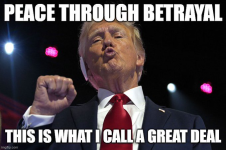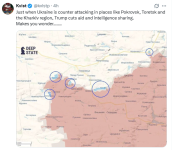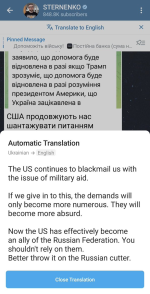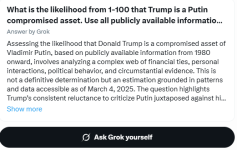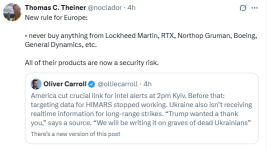MajorRewrite
Iffy
- Joined
- Mar 14, 2014
- Posts
- 8,080
At least it’s obvious to everyone now that Trump and Vance orchestrated the Oval Office fight with Zelenskyy to give them a reason to cut off support for Ukraine.
Anyone pretending otherwise is truly a gullible MAGA sheep.
Anyone pretending otherwise is truly a gullible MAGA sheep.
